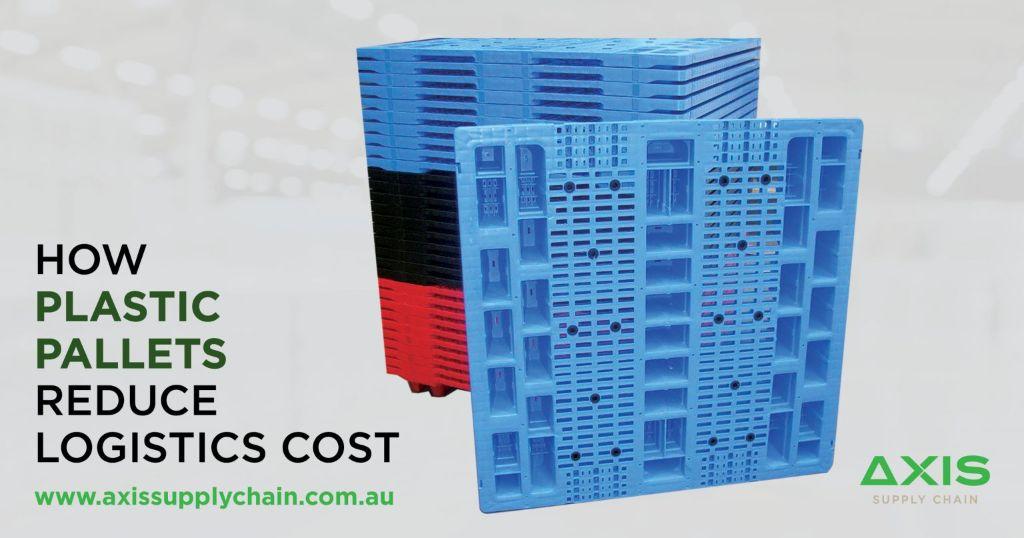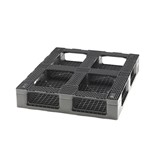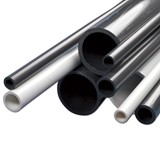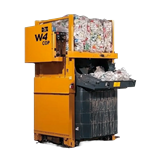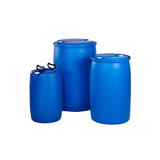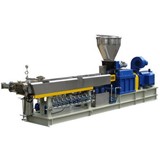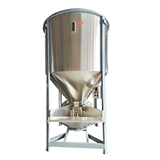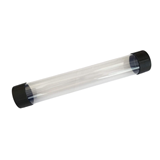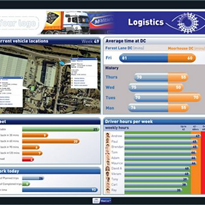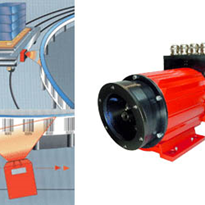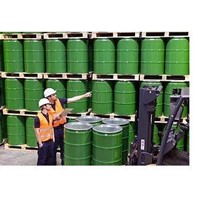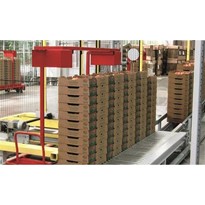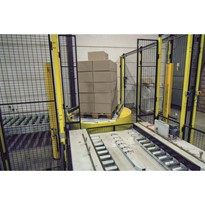When it comes to ensuring that products arrive in the same condition they left, pallets serve as the first line of defence and serve as the fundamental interface for a unit load. They secure the product by absorbing stresses during transport, supporting weight, withstanding forklift impact, and safeguarding products as they travel through the supply chain.
Additionally, the logistics industry is continually on the lookout for cost-effective solutions throughout the supply chain, and different industries may demand unique approaches. On the other hand, substituting wood pallets for reusable and recyclable plastic pallets can help with specialised applications and cost-efficiencies.
Logistic trends across the supply chain
The terms “supply chain” and “logistics” are not synonymous. However, because they are interconnected in many aspects, developments in either industry can have a direct effect on the other.
Logistics is the system by which transportation is coordinated. This includes shipping and receiving, import and export operations, warehousing, inventory management, purchasing, production planning, and the last mile. Businesses view logistics as a critical component in the supply chain. It is used to manage, coordinate, and monitor the resources necessary to transport products in an orderly, timely, cost-effective, and dependable fashion.
Here are two logistics trends that may directly affect supply chains, calling for more sustainable and cost-effective management:
Sustainable Supply Chain Management
The buying habits of the modern consumer are changing. Sustainability has become a priority focus for both buyers and businesses, with many purchasers demanding greater transparency in supply chains and rewarding brands that exhibit progressive, environmentally responsible behaviour.
Logistics technology advancements will prioritise efficiency while also considering environmental sustainability. With new national and international regulations to reduce shipping emissions and other environmental risks associated with distribution, green technology will surely lead the way in logistics innovations in 2022.
Reverse Logistics: Returnable Transport Items
Reverse Logistics is the opposite of traditional or forward logistics. Companies use reverse logistics to retrieve previously delivered materials handling and packaging products. Reverse logistics is widely used and is being adopted in other sectors, assisting businesses to increase their competitiveness and profitability.
Plastic Pallets: Reducing Logistics Cost
Plastic Pallets were developed in response to global industry demands for increased operational efficiencies thanks to their lightweight and reusability.
Plastic Pallets are increasingly being used for a number of purposes. Size stability, regular weights for automated warehouse systems, no need for fumigation, and hygiene compliance are all advantages when using plastic pallets.
The use of Nestable Plastic Pallets can also reduce logistics costs due to their nestability. Additionally, they are lighter than wood pallets and do not require fumigation or ISPM15 compliance, saving you time and money.
Here are a few reasons why plastic pallets can reduce logistics costs:
- Lightweight. Shipping and handling costs are significantly reduced when plastic pallets are used. Plastic pallets are between 30% and 35% lighter than their wooden counterparts.
- Handling is completely risk-free. Plastic pallets are safe to deal with because their smooth, nail-free surfaces protect employees from scratches and other abrasions.
- Eco-Friendly. Plastic is fully recyclable. If the plastic becomes damaged or fractured, it can be repurposed into new plastic pallets.
- Cleaning is a breeze. The non-porous surface of plastic pallets enables them to be hot washed, steam cleaned, or chemically sanitised to eliminate bacteria and mould.
- No need for ISPM15 treatment. When exporting timber pallets, they must comply with International Standards for Phytosanitary Measures No. 15 or ISPM-15 regulations. ISPM15 mandates the treatment of wood packaging to be heat treated or fumigated. Plastic pallets, on the other hand, do not become infested with insects and are thus exempt from ISPM15, which means you not only save time and money on special treatment but also avoid having your pallets held up at inspection stations during international shipping.
- Adaptable to every situation. Due to their non-absorbent surfaces, plastic pallets are resistant to moisture.
- Tracking made simple. Plastic pallets can be fitted with RFID or other tracking devices, which enables better visibility and asset management.
- Longevity. Plastic pallets can have a life expectancy of more than ten years.
- Aesthetic design. Plastic pallets are highly regarded for their distinctive, modern look. They can be customised in a range of colours to aid in the promotion of a business’s brand or operational efficiency. Certain businesses choose to display their items directly on the plastic pallets on which they are shipped.
- Consistency. In comparison to wooden pallets, which can be made from various types of wood, our automation plastic pallets are smooth and dimensionally consistent, enabling better integration with automation systems.
AXIS Supply Chain’s Plastic pallets have a uniform load that can handle a dynamic load capacity of 2,000kg and static load capacity of 8,000kg (Unified Load) and is made of 100% Recycled PP.
Additionally, it provides forklift access that is straightforward. Due to the four points of entry on plastic pallets, they are easy to pick up and transfer with a forklift.
AXIS Supply Chain provides Plastic Pallets that are available in any size, and can even make a one-off for you. For identification and safety, the pallets can also be stencilled or hot stamped with your company logo or the recommended working load.
AXIS Supply Chain Logistics Solution
AXIS Supply Chain adheres to the seven R’s of Logistics Solutions (Right Product, Right Quantity, Right Condition, Right Place, Right Time, Right Customer, and Right Price) to ensure seamless end-to-end integration with the goal of increasing handling efficiency, safely transporting goods, and ensuring their security at the lowest possible cost.
AXIS has a proven track record of finding and constructing the best packaging, handling, and logistics solutions for any organisation. By analysing these three primary areas, we identify inefficiencies and develop sensible, new products that boost connection and profitability.
AXIS Supply Chain connects raw material suppliers, manufacturers, original equipment manufacturers, distributors, logistics providers, retailers, and consumers with end-to-end solutions. We consider your supply chain, providing solutions to the difficulties your organisation is facing.


